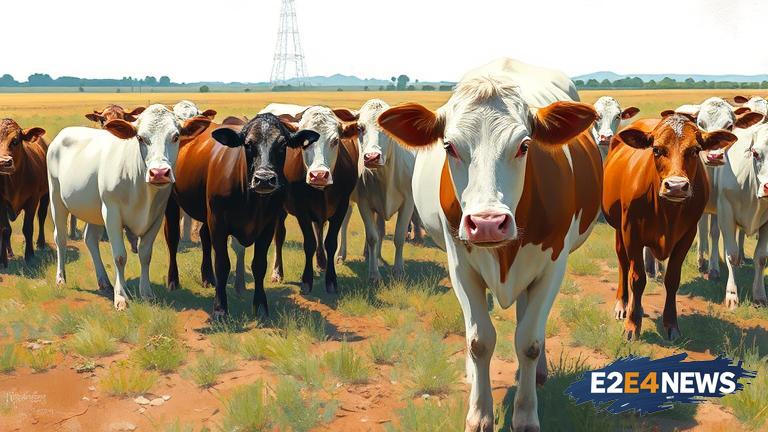The livestock industry in Oklahoma is at a crossroads due to a severe shortage of veterinarians in the state. This shortage is having a profound impact on the industry, with many farmers and ranchers struggling to find qualified veterinary care for their animals. The lack of veterinarians is not only affecting the health and well-being of the animals but also the livelihoods of those who depend on the industry. Oklahoma is one of the top livestock-producing states in the country, with cattle, poultry, and swine being major contributors to the state’s economy. However, the shortage of veterinarians is making it difficult for farmers and ranchers to maintain the health of their herds, which is essential for the industry’s survival. The Oklahoma Veterinary Medical Association has reported that there are currently over 100 vacant veterinary positions in the state, with many of these positions being in rural areas where the need is greatest. This shortage is attributed to a combination of factors, including a lack of funding for veterinary education, a shortage of veterinary schools, and a lack of incentives for veterinarians to practice in rural areas. The state government has recognized the severity of the problem and is taking steps to address it, including increasing funding for veterinary education and providing incentives for veterinarians to practice in rural areas. However, it will take time to see the results of these efforts, and in the meantime, the livestock industry is facing significant challenges. The shortage of veterinarians is not only affecting the livestock industry but also the state’s economy as a whole. The industry is a major contributor to the state’s GDP, and any decline in the industry’s productivity could have far-reaching consequences. Furthermore, the shortage of veterinarians is also affecting the state’s food security, as a significant portion of the state’s food supply comes from the livestock industry. In addition, the shortage is also having an impact on the state’s rural communities, where the livestock industry is often the main source of employment and economic activity. The Oklahoma Department of Agriculture, Food, and Forestry is working closely with the Oklahoma Veterinary Medical Association and other stakeholders to address the shortage and ensure the long-term sustainability of the livestock industry. The department is also exploring alternative solutions, such as telemedicine, to provide veterinary care to rural areas. Despite these efforts, the shortage of veterinarians remains a significant challenge for the livestock industry in Oklahoma, and it will require a sustained effort to address the problem and ensure the industry’s continued success.
